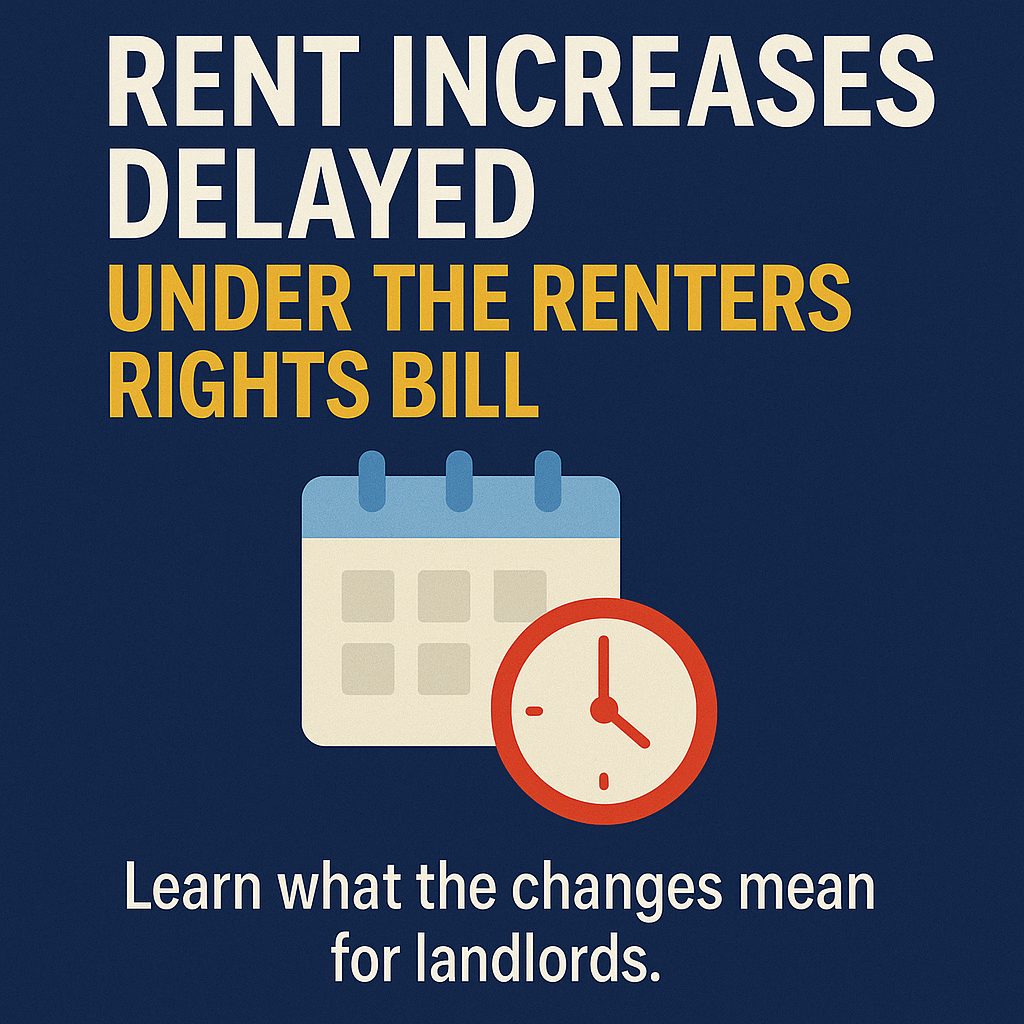The Renters (Reform) Bill is bringing sweeping changes to how landlords can manage rent increases—and these changes could significantly impact how and when you’re able to adjust rent in response to rising costs. If you're a landlord, understanding these new rules is essential for planning your rental income and avoiding potential delays and disputes.
Here’s what you need to know.
✅ How the Current System Works
At present, landlords have multiple options when it comes to increasing rent:
- Section 13 notice: With a minimum of one month's notice, a landlord can propose a rent increase.
- Verbal or written agreement: If both parties agree to a rent increase—whether by email, in person, or via payment—it’s legally binding.
- Tenancy agreement clauses: Fixed-term tenancy contracts often include clauses that allow rent increases at certain intervals.
If tenants disagree with the proposed increase, they can appeal to the First-tier Tribunal, which assesses whether the proposed rent is in line with the local market for similar properties. However, there's a twist: if the Tribunal finds the market rent is actually higher than the one proposed, they can award that higher amount—so tenants often hesitate to appeal.
Additionally, the Tribunal will backdate the new rent to the date the increase was originally meant to apply.
🚨 What’s Changing with the Renters Rights Bill
Under the new system, the government is standardising and restricting how landlords can raise rent:
- Only Section 13 notices will be valid—with a longer notice period of 2 months.
- Verbal or informal agreements will no longer be valid for raising rent.
- Any clauses in tenancy agreements that allow for rent increases will be considered void.
The Tribunal process is also being overhauled in a way that heavily favours tenants:
- Tenants can still appeal a rent increase.
- However, the Tribunal will now only award either the proposed rent or the market rent—whichever is lower.
- The Tribunal will not backdate the increase.
- If a tenant claims financial hardship, the Tribunal can delay the increase by up to 2 months.
📉 The Consequences for Landlords
These changes make it far more likely that tenants will begin challenging rent increases. Why?
- There’s now no risk of a higher rent being imposed by the Tribunal, as used to be the case.
- Appealing automatically delays the increase.
- With Section 21 “no-fault” evictions being abolished, tenants may feel emboldened to push back against any increase.
- In short: they have nothing to lose by appealing.
What’s more, the current system is already slow—and the new rules are likely to add to that pressure.
Based on our own experience at Goldsmith Property, a single appeal case has already dragged on for several months and still isn’t resolved. If more tenants begin challenging increases, we could be looking at delays of 3–6 months or more for each case. With the added possibility of a 2-month Tribunal delay on top, you might only realistically be able to increase rents every 18 months, or even less frequently.
And with tenant advocacy groups like Shelter and Acorn actively encouraging tenants to appeal increases to delay or avoid paying more, we expect to see these challenges become more common.
🧭 What Should Landlords Do Now?
- Be strategic about when and how you propose increases—make sure your Section 13 notices are watertight and well-documented.
- Keep records of comparable market rents to justify your proposals if challenged.
- Consider longer-term financial planning, knowing that rent increases may be delayed or blocked.
- Communicate proactively with tenants, as good relationships can reduce the chance of disputes.
At Goldsmith Property, we specialise in helping landlords navigate regulatory change with clarity and confidence. If you’re unsure how these changes could affect your rental income—or you’re facing a rent challenge—we’re here to help.
📞 Contact us today at info@goldsmith-property.co.uk or visit www.goldsmith-property.co.uk for expert guidance you can trust.


 By
By 

Share this with
Email
Facebook
Messenger
Twitter
Pinterest
LinkedIn
Copy this link